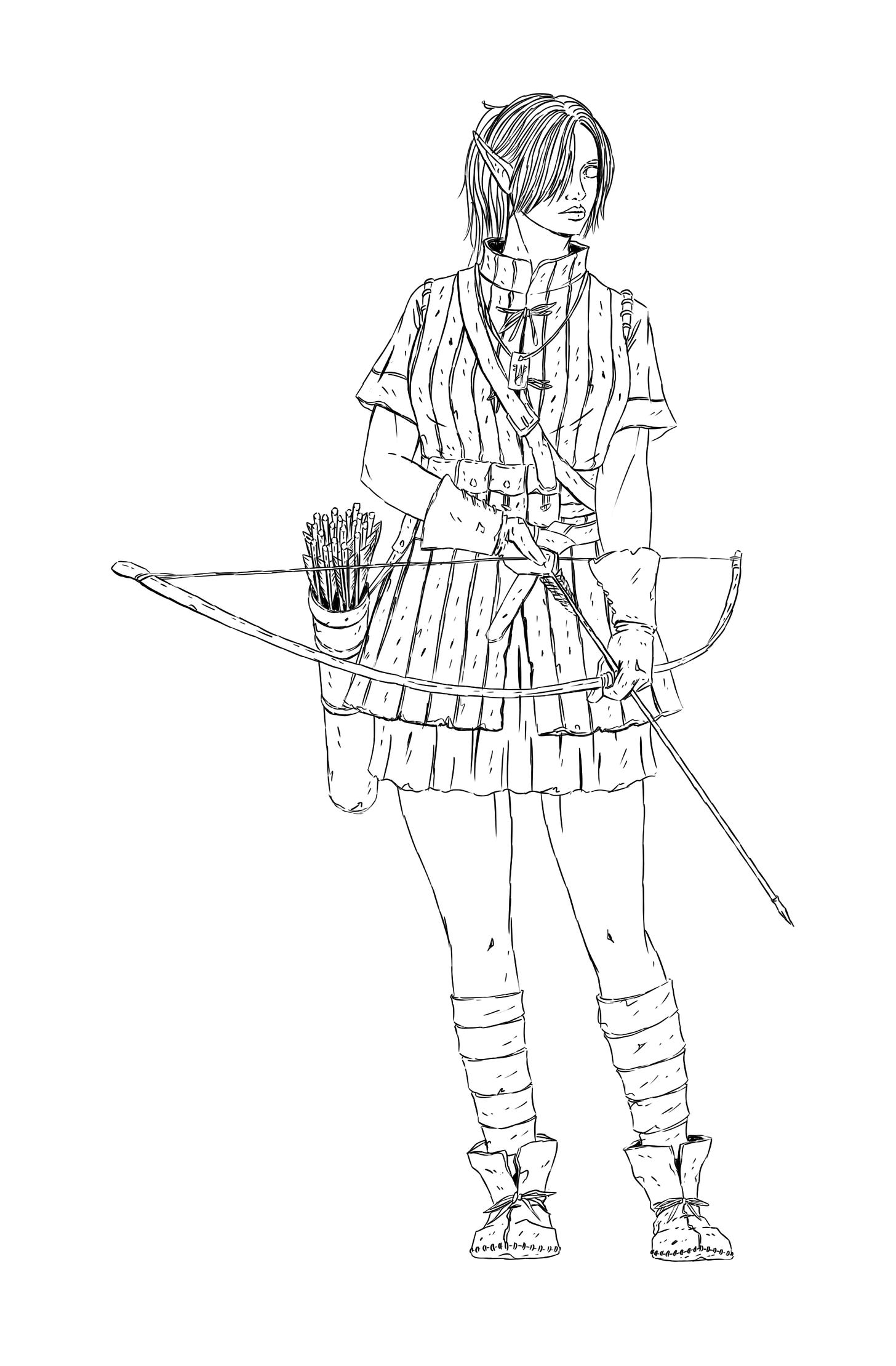Dungeons & Delvers 2E: Revised Ranger
(NOTE: I wrote an article about "Shadowdarking" the hobby, which can be read on the other blog.)
In 2nd Edition Advanced Dungeons & Dragons, the ranger’s species enemy is a hilariously bad class feature: you pick a creature, which might need to be specific or a general type, as both giants and orcs are given as examples(up to the DM I suppose), and get a +4 to hit it.
3rd Edition wasn’t much better: you picked a creature type and got a bonus to damage and various skills. More useful, and you get to add more as you leveled up, as well as improve previous choices. The main drawback is that these choices are quite spread out, being made only every 5 levels.
The obvious issues with both were that, if you don’t encounter that creature, it has no benefit at all, and in 3rd Edition due to the flawed Challenge Rating system it was virtually guaranteed that, even were you to pick something like an orc, it would only matter at lower levels where it was “level appropriate” to encounter them.
4th Edition wisely did away with it entirely, replacing it with Hunter’s Quarry. Here you’d pick a monster you were fighting, and receive a damage bonus on each hit. Once the monster was dead or gone, you could then designate a new “quarry” and rinse and repeat.
Sure, it lacked the flavor but at least it was always useful.
5th Edition is a woke trash vapidware skin suit so as with most of its alleged audience we’ll just ignore it.
In Dungeons & Delvers this is one of the many things we sought to improve upon, and at some point came up with the Hunter class feature. You choose a monster type at 1st-level, and against that type you get a +1 bonus to damage, lore checks, and other checks made to detect it.
More flavorful, plus each time you level up you can spend a Skill Point to add a new type, and you can just keep doing this as much as you want at the expense of improving one of your skills. Additionally, at levels 5, 10, 15, and 20, you can invest more skill points to improve the bonus by +1 each time, up to a maximum of +5.
Not as consistently useful as 4th Edition, but far more flexible than 3rd Edition while retaining the overall flavor of a skilled hunter. Even better, there were a number of Expertise Talents that the ranger could take. These required a Hunter Bonus in a given monster type, but granted additional benefits that weren’t always restricted to that type.
For example, Ooze Expertise granted acid resistance, as well as a bonus to resist and recover from the Corroding condition. Giant Expertise made it harder for giants to hit you, while Undead Expertise granted necrotic resistance and also prevented undead from Draining your Wound Points and Vitality Points.
For 2nd Edition the core concept of the class remains the same, but as with everything else the Talents are getting overhauled largely due to a prevalence of frankly optimal picks such as Talents that grant passive bonuses to attacks and damage—such as Deadeye—though some are getting modified due to math changes, and others are getting removed because they are too situational.
All of the Expertise Talents are being removed, replaced by a handful of other Talents that make the ranger better at resisting various forms of attacks, as well as evade attacks, though these only apply to monsters that he has a Hunter Bonus against, and the effects scale by the Hunter Bonus so there’s an added incentive to keep increasing it.
For example, here’s Agile Hunter and Weakness Exploit:
AGILE HUNTER
Prerequisite Proficiency in Acrobatics
The ranger gains a +1 bonus to his Acrobatics checks.
When the ranger is forced to make a Dexterity save due to an attack or effect imposed on him by a creature that his Hunter bonus applies to, he gains a bonus to his save equal to the applicable Hunter bonus.
WEAKNESS EXPLOIT
When the ranger attacks a monster that his Hunter Bonus applies to, he gains Armor Penetration against that monster equal to the applicable Hunter Bonus.
We’re also scrapping the entire Animal Companion tree, as we want to make it so that anyone can take a pet and there’s a benefit to doing so. Pets won’t automatically improve but can have stats trained up, and rangers can select Talents that make them better and faster at doing this, as well as improving the combat efficacy of pets.













Leave a Comment